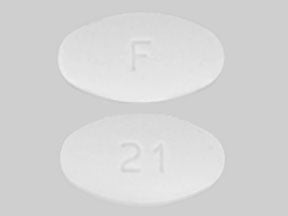My prescription
Edit
70MG, Alendronate (12 Tablets)
Select pharmacy

CVS
$28.39
COUPON PRICE
Walmart
$12.82
COUPON PRICE
Albertsons
$18.09
COUPON PRICE
Walgreens
$21.25
COUPON PRICEAlendronate savings card
Show this card to your pharmacist
Walmart
$12.82
BIN
ID
PCN
GRP
019876
LH579450AB
CHIPPO
LHX
Powered by
More prescriptions for Paget's disease
More prescriptions for Paget's disease
Price history for Fosamax (brand) & Alendronate (generic)
12 Tablets, 70MG
Average retail price for Fosamax
Average retail price for Alendronate
Average SaveHealth price for Alendronate
Our price history data is based on aggregated prescription data collected from participating pharmacies in America. Our prescription data updates daily to reflect the latest price changes. If you notice a missing data point, it means there wasn't sufficient data available to generate a monetary value for that date.
We analyzed Alendronate prices for (70MG, 12 Tablets) over the last 12 months. The average retail price was $144.75, while the average price using the SaveHealth discount card was $12.99. That's a savings of approximately 91.03% when using our Alendronate coupon.
Compared to the generic version, Fosamax had an average price of $568.40 over the same time period. With the SaveHealth savings card, Alendronate is 97.71% cheaper on average than Fosamax.
*Retail prices are based on pharmacy claims data, and may not be accurate when we don't have enough claims.
Alendronate dosage forms
Dosage Quantity Price from Per unit 5MG 30 Tablets $56.96 $1.90 5MG 100 Tablets $234.18 $2.34 10MG 30 Tablets $18.82 $0.63 10MG 90 Tablets $26.47 $0.29 10MG 100 Tablets $27.75 $0.28 35MG 4 Tablets $3.92 $0.98 35MG 12 Tablets $13.27 $1.11 35MG 20 Tablets $21.19 $1.06 70MG 12 Tablets $12.82 $1.07 70MG 4 Tablets $3.77 $0.94
| Dosage | Quantity | Price from | Per unit |
|---|---|---|---|
| 5MG | 30 Tablets | $56.96 | $1.90 |
| 5MG | 100 Tablets | $234.18 | $2.34 |
| 10MG | 30 Tablets | $18.82 | $0.63 |
| 10MG | 90 Tablets | $26.47 | $0.29 |
| 10MG | 100 Tablets | $27.75 | $0.28 |
| 35MG | 4 Tablets | $3.92 | $0.98 |
| 35MG | 12 Tablets | $13.27 | $1.11 |
| 35MG | 20 Tablets | $21.19 | $1.06 |
| 70MG | 12 Tablets | $12.82 | $1.07 |
| 70MG | 4 Tablets | $3.77 | $0.94 |
| 70MG | 20 Tablets | $20.14 | $1.01 |
| 70MG | 100 Tablets | $40.71 | $0.41 |

